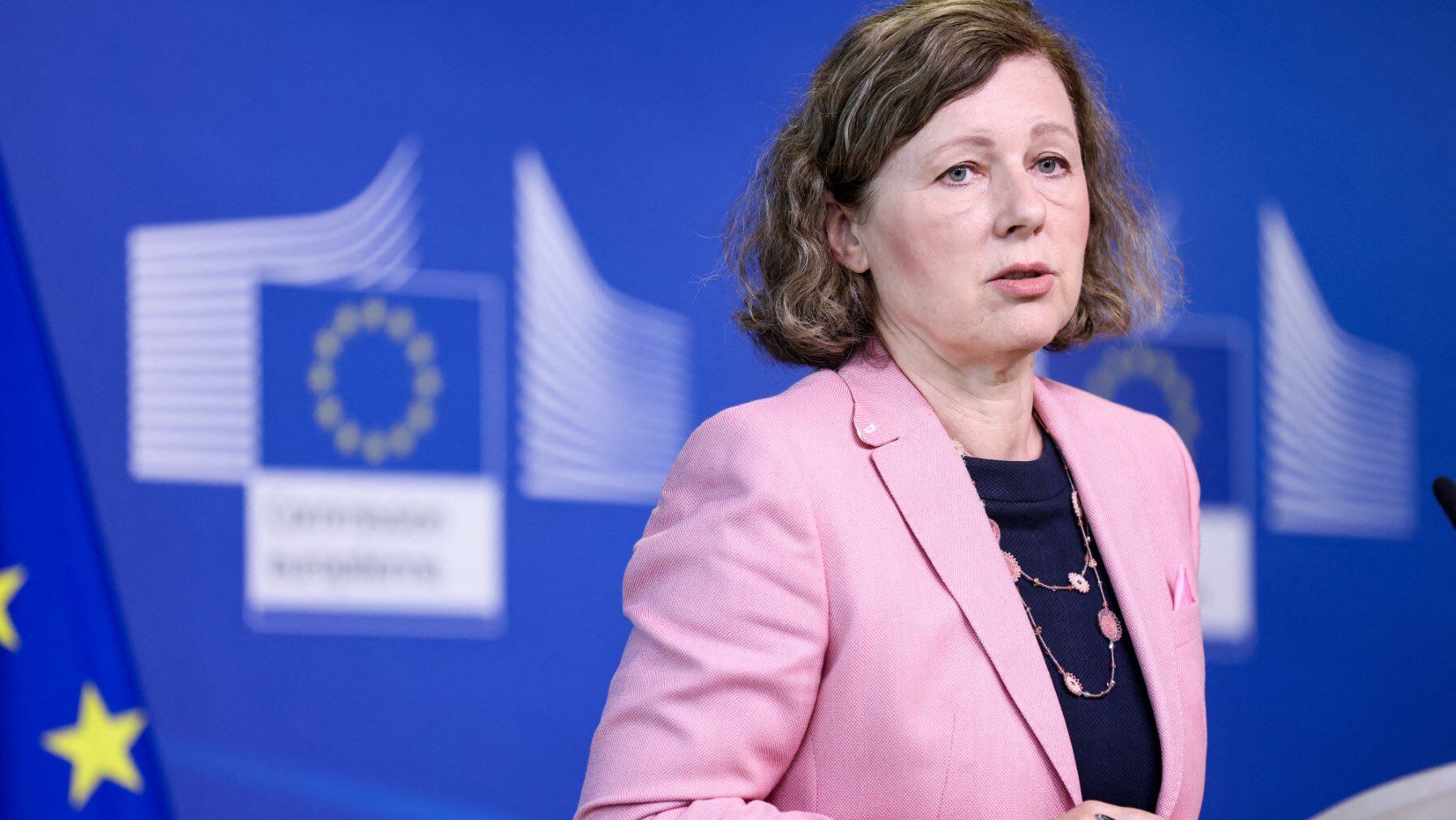
Vice President of the European Commission for Values and Transparency Vera Jourová
Photo: KENZO TRIBOUILLARD / AFP
Hungarian media have been quick to point out the hypocrisy surrounding the criticism of a recently passed Hungarian law, as it is in fact very similar to a proposal by the European Commission as well as the American Foreign Agents Registration Act.
The Hungarian parliament passed the so-called ‘Sovereignty Protection Law’ on Tuesday, December 12th, to defend the country against undue political interference by foreign persons or groups. The ruling conservative party, Fidesz, deemed it necessary to take such action after revelations surfaced last year that the Hungarian opposition’s 2022 election campaign was massively funded from overseas, mainly through a U.S. non-profit called Action for Democracy. Fidesz stated:
This amounts to political corruption, foreign interference in Hungarian elections, and an illegal attack on Hungary’s sovereignty.
The new law will set up a separate authority to explore and monitor risks of political interference. It will have the authority to investigate activities that may manipulate information or influence election outcomes. It will also punish banned foreign financing for parties or groups running for election with up to three years in prison.
❗The Hungarian Parliament has established the Sovereignty Protection Office with the passage of the new law aimed at defending national sovereignty.
— Zoltan Kovacs (@zoltanspox) December 12, 2023
▶️ Approved by majority vote, the law addresses concerns about foreign influences against Hungarian interests and sovereignty.… pic.twitter.com/joiPAigOmu
U.S. Ambassador to Budapest David Pressman—a regular critic of Hungary—said the new law “makes Moscow’s foreign agent law look mild and meek.” While Russia does indeed have such a law, so does the United States, called the Foreign Agents Registration Act, a law which imposes public disclosure obligations on persons representing foreign interests.
Meanwhile, on the same day the Hungarian law was passed, Vice President of the European Commission for Values and Transparency Vera Jourová announced the commission’s so-called Defence of Democracy package, a piece of regulation very similar to the Hungarian bill. Some conservative outlets in Hungary, like the daily Magyar Nemzet, even referred to it as “Brussels’ Sovereignty Protection Law.”
We should not let #Putin or any other autocrat to covertly meddle in our democratic process in #Europe.
— Věra Jourová (@VeraJourova) December 12, 2023
Defence of #Democracy package also strengthens our toolbox to protect #elections integrity and have a strong civil society space.
👉https://t.co/7QRjlLsQ4L#EUDemocracy 👇📽️ pic.twitter.com/3oHWQhjYOS
The main aim of the package, as described on the Commission’s website, is to tackle the threat of foreign interference with more transparency. Groups working for foreign countries (not part of the European Union or the European Economic Area) will have to register in a transparency register. “Foreign interference in our democratic systems is a serious problem that needs to be addressed. It is high time to bring covert foreign influence to light,” they write.
Important details about these activities, for instance on how much money is received each year, the countries involved and the main goals of the activities, will be publicly available. However, as we previously reported, the package—primarily aimed to weed out Russian and Chinese influence—will ensure that “registered entities would be able to request that all or part of the information is not made publicly available.” This comes after over 230 national and international organisations signed a joint letter in May asking the Commission to scrap its plans, citing concerns for potential “abuse” from certain governments. Not surprisingly, U.S.-backed, leftist organisations seem heavily overrepresented among the signatories, such as Transparency International, Human Rights Watch, Democracy International, and George Soros’ Open Society Foundations. Vera Jourová said that the current version of the package leaves some room for preferential treatment in certain cases.
Interestingly enough, a previous Hungarian law requiring NGOs to register as organisations funded from abroad had to be repealed by the Hungarian parliament after the Court of Justice of the European Union (CJEU) ruled that the restrictions didn’t comply with EU law, and the European Commission launched an infringement procedure against the country.
Nevertheless, the Commission now intends to introduce its own ‘foreign agents law,’ a label Vera Jourová has vehemently rejected. For the proposal to become law, it would need the backing of the European Council, the member states of the EU, and the European Parliament. Whether there is an appetite for such a law will be determined in the next couple of months. The Commission wants a decision made before the European Parliament elections in June of next year.
The Parliament itself is embroiled in the Qatargate scandal, with Belgian authorities investigating alleged bribes said to have been paid by Qatar and Morocco in an attempt to influence EU decision-making.
